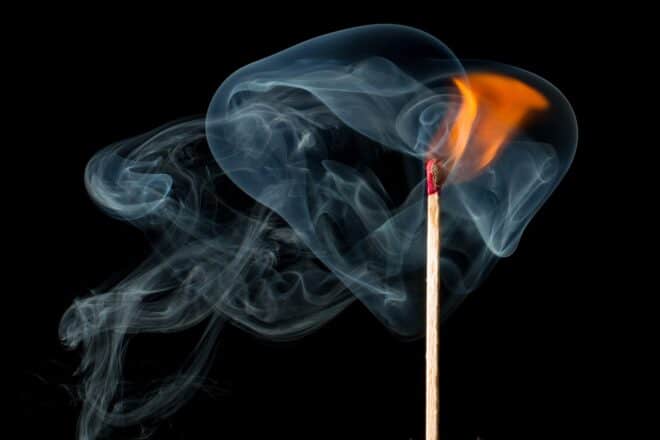Avoiding Podcasting Burnout When You Love Your Work

It’s no secret that podcasting isn’t the world’s most lucrative business. Unless you’re a big media company peddling a star-studded chatcast, it’s very likely you’ll never get money from your podcast at all. In fact, if you’re paying out of pocket for things like RSS feed hosting, a good microphone, and a website, it’s actually quite possible that you’ll lose money. Yet there are, without a doubt, a large number of independent podcasters who accept that they’ll probably never make money from their podcast but want to create it anyway. Why do they do it if they know it won’t make them money? Simple: a love of the art.
While that’s a great reason to make art, it also comes with its potential downsides. Depending on what kind of podcast you’re making and what role you have in it, podcasting can easily take as much time as a part-time job—but one that you’re not getting paid for, which is a quick road to burnout.
I’m currently producing a fiction podcast, Twilight Over Midgard. By my rough estimation, I probably spend an average of 10-20 hours per week working on the show. That’s a big commitment, especially considering that I also work 40 hours a week at a regular full-time job. That large commitment is made worse by my greatest flaw as a podcaster, which is shared by many of my colleagues:
Folks, I suck at taking breaks.
Here’s the thing: I genuinely love podcasting. It’s fun. It doesn’t feel like work when I’m doing it—it can actually feel relaxing in the same way that playing video games does. But it’s really, really not. Even when it’s fun, it’s work, and that can always lead to burnout. Creating this show isn’t something that I’m doing just for me. I have an obligation to a lot of different people to finish tasks on time. And anytime an art project stops being just for you and becomes something with deadlines and obligations, it’s not just a hobby anymore: it’s work.
I feel like I’m having to dodge tomatoes for saying that, but it’s true! It seems almost sacrilegious to say that podcasts, which most people make purely for a love of the medium, are work. But it doesn’t diminish podcasting as an art form to say that. Quite the contrary, actually: I think that it shows how seriously a lot of podcasters take their craft. But it doesn’t change the fact that when something is work, you need to take breaks from it. I’ve often heard it said that if you don’t pick a time to take a break, your body will pick it for you. In my experience, that very much applies to podcasting and burnout.
A cautionary tale about burnout
Let me set the scene for you: it was early August 2020. My husband/creative partner Nick just got the idea for Twilight Over Midgard. I was incredibly excited by the idea, so I began working on it pretty much nonstop. If I wasn’t at my full-time job or spending time with my family, I was probably working. I even downloaded the Google Docs app on my phone and started writing scripts in the bath and while I was winding down for bed at night. Looking at that now, I think, Oh my god, why did I do that, how did I ever think that was okay? It seemed fine at the time—writing is fun! I love writing! Writing has always been a hobby for me and has been something I’ve done to relax from about the age of seven, and this is writing, so it’s relaxing, right?
Wrong.
Because then came mid-October 2020. After about ten weeks of nonstop work, I just… crashed. Hard. I could not work on anything. I would open a document and just stare at it blankly, unable to add anything or even to focus enough to edit what I had already written. I would carve out time to work on the podcast and instead just scroll social media for five hours. I realized that I was beginning to hate writing. That was genuinely upsetting to me. Writing had been my best friend for as long as I could remember. It had always been my greatest solace, my most wonderful escape. How could I hate my oldest friend?
I couldn’t bring myself to work, but I knew that social media wasn’t the answer: this was right before the U.S. Presidential Election, so social media was basically a constant non-stop reminder of everything going wrong in my country. I couldn’t write. Scrolling social media wasn’t working. I needed something to help me rest, relax, and recharge. I had heard a lot of people recommend Tamsyn Muir’s novel Gideon the Ninth, which had been billed to me as a science fantasy book about a lesbian necromancer and her butch bodyguard. Which, oh my god, yes. Absolutely. Please. Yes. I began reading it and it was amazing. A few days later, I had spent none of my free time working on podcasts and most of my free time reading.
By pulling away from my own work and diving into somebody else’s, I was able to step away from the burnout that had been frustrating me in my own writing and rediscover what I love about fiction.
I felt a lot better already. I still wasn’t up to working on the podcast again, but I was already feeling less stressed, less anxious, and more rested than I had been a few days ago. I ended up sending a nervous message to some of my friends: was I allowed to not work on podcasting at all for a few weeks while I read Gideon the Ninth and its sequel? I was honestly embarrassed to be asking that. It felt shameful. I had always been taught growing up that you should always be doing something “productive”, that taking the time to rest is lazy and bad. So when I asked my friends if it was fine for me to take a break, part of me did honestly expect for them to say “no, keep working”. Thankfully, my friends were quick to tell me in no uncertain terms that rest is not shameful, that I don’t always have to be “productive”, and that I needed to take a break. So I did.
By early November, I had finished both Gideon the Ninth and its sequel Harrow the Ninth. But I was still feeling the burnout. I needed something else to get me through a few more weeks of rest. After some thought, I turned to fanfiction. I couldn’t work on the podcast again just yet, but I wanted to write.
Over the next several days of working on a Gideon the Ninth fanfiction, something amazing happened: I began to fall in love with writing again. It slowly shifted away from being something that brought me stress and anxiety back into something that brought me joy. By pulling away from my own work and diving into somebody else’s, I was able to step away from the burnout that had been frustrating me in my own writing and rediscover what I love about fiction. I ended up extending my podcast break for a few more weeks. When I eventually went back to Twilight Over Midgard, it was with a renewed sense of energy and passion.
Now, obviously, reading a book about a lesbian necromancer and then writing fanfiction about it won’t work for everyone. But I truly think that the lessons I’ve learned while working on this podcast are lessons that all podcasters—all creators—should take to heart. Namely:
Set realistic deadlines
Remember that one of the joys of independent podcasting is that we’re not constrained to somebody else imposing a strict release schedule. Your audience won’t abandon you if they have to wait a while for new episodes. Don’t build your production and release schedule based on what you think the audience wants: build it based on when you can have the work done without pushing yourself. Structure your show into seasons—even if it’s a nonfiction show—and plan to take breaks between each season.
Take breaks
Set limits on how much work you can do in a day or what hours you can work during and then stick to those. Give yourself regular time to take lengthier breaks (minimum a few days, ideally at least a week or two) where you don’t work on your podcast at all. It may be hard, especially at first, but it’s really, really important if you want a real solution for your burnout, even when you love what you do.
Not only am I taking care of myself, but I’m taking care of the production, too.
Stagger your roles
This is something that I’ve found incredibly helpful for burnout, but that I offer up with the caveat that it might not be possible for all productions: if you’re taking on multiple roles in your production, try—if at all possible—to build your schedule so that you only have to focus on one thing at once.
For example, I’m an actor in Twilight Over Midgard in addition to being the writer and dialogue editor. We’ve scheduled our production so that I can finish all of my recording for season one, then do all of the dialogue editing, then write the scripts for season two. That may seem like it means that the production will take longer—and yeah, sure, maybe it will! But it also ensures that I won’t suddenly hit a breaking point mid-production and find myself unable to do any work at all. Not only am I taking care of myself, but I’m taking care of the production, too.
Consume art, don’t just create it
Take the time to consume other people’s art instead of just producing your own. In my opinion, this is one of the most important pieces of creating art. In addition to being relaxing, consuming art can help you remember what you love about it, revitalize your passion for storytelling (whether fiction or nonfiction), and give you inspiration for your own stories.
I think that it’s important to familiarize yourself with other works in the genre and format of your own story, but you shouldn’t limit yourself to that—sometimes inspiration can come from media that’s completely different! Twilight Over Midgard is a modern fantasy podcast intended for adults, but pieces of media I consider influences include Avatar: the Last Airbender (a children’s TV show) and The Murderbot Diaries (a series of sci-fi novels).
Read more: How to Audio Drama: Your (First) Story Bible
The bottom line on burnout
Art is important. I really do think it is—art connects us to people, it relaxes and recharges us; art can be a protest against the world and a prayer for it to change and a plea for people to rise up. Art is vital. But taking care of yourself is vital, too. No matter how important art is, your health comes first. So please, my fellow creators: take care of yourself. Take a break. I promise, no matter how long you walk away from it, your art will always be there for you when you get back.













Comments
Comments are closed.